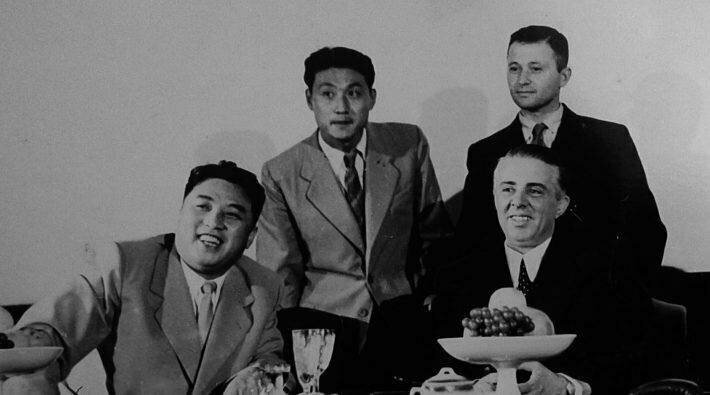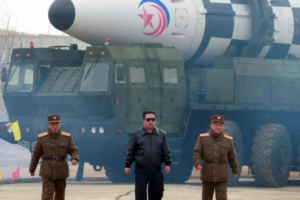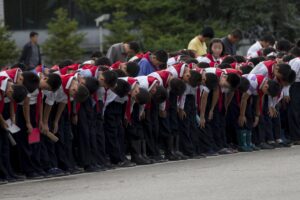When Khrushchev rose to power in the Soviet Union and promoted de-Stalinization and “peaceful co-existence,” the socialist world began to split. Traditional hardliners in the Eastern Bloc opposed what they perceived as heretic “revisionism”.
Albania, in particular, resisted Khrushchev’s agenda; it feared that a détente with Yugoslavia could revive Yugoslavian influence in Albania.
When Khrushchev rose to power in the Soviet Union and promoted de-Stalinization and “peaceful co-existence,” the socialist world began to split. Traditional hardliners in the Eastern Bloc opposed what they perceived as heretic “revisionism”.
Albania, in particular, resisted Khrushchev’s agenda; it feared that a détente with Yugoslavia could revive Yugoslavian influence in Albania.
Try unlimited access
Only $1 for four weeks
-
Unlimited access to all of NK News: reporting, investigations, analysis
-
Year-one discount if you continue past $1 trial period
-
The NK News Daily Update, an email newsletter to keep you in the loop
-
Searchable archive of all content, photo galleries, special columns
-
Contact NK News reporters with tips or requests for reporting
Get unlimited access to all NK News content, including original reporting, investigations, and analyses by our team of DPRK experts.
Subscribe
now
All major cards accepted. No commitments – you can cancel any time.











